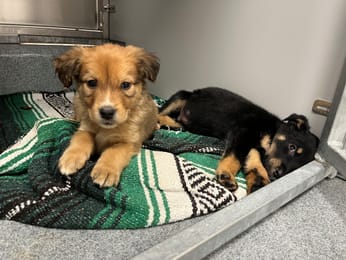Robot-assisted surgeries in Regina
Pasqua Hospital launches robotic surgery system to expand advanced care for southern Saskatchewan patients.
- Media Release, Gov’t SK
November 04, 2025
key points from this story:
- Robot system launched at Pasqua Hospital
- Saskatchewan invests $2 million annually
- Nearly 20 surgeries already completed
- Surgeries include hysterectomies, hernias
- System improves recovery, reduces wait times
- Hospitals of Regina Foundation supports equipment
Patients in southern Saskatchewan will benefit from a new state-of-the-art robot-assisted surgical (RAS) system located at the Pasqua Hospital in Regina. With two locations at St. Paul’s Hospital in Saskatoon and now a third added in Regina, RAS will benefit more patients and improve outcomes by providing less invasive procedures and faster recovery times. Since Fall 2022, Saskatchewan has invested $2 million annually to continue expanding the provincial RAS system.
“It is exciting to see our innovative surgical robotics program now expanding to include Regina’s Pasqua Hospital,” Health Minister Jeremy Cockrill said. “This program will ensure more patients in Regina and across southern Saskatchewan have access to advanced surgical care for a wide range of procedures including cancer care closer to home. We are putting patients first by equipping and training our surgical teams with new technology that delivers better surgical experiences and outcomes.”
Since the system was launched in September 2025, nearly 20 surgeries have been performed in Regina using the da Vinci Surgical System, including hysterectomies (removal of the uterus) and hernia surgery.
“The Saskatchewan Health Authority is committed to ensuring people across our province can access and benefit from the most advanced care available,” Saskatchewan Health Authority Chief Operating Officer Derek Miller said. “With a da Vinci Surgical System now in Regina, we are expanding access in southern Saskatchewan to innovative surgical technology that will reduce wait times, enhance surgical care closer to home, and support our surgical teams in delivering high-quality health care.”
The da Vinci surgical robot is a high-tech system that helps surgeons perform a wide range of minimally invasive procedures. The surgeon is situated at a central control panel and uses hand and foot controls to guide the robot’s arms, which hold tiny surgical instruments and a camera. Every movement the surgeon makes is translated into precise, scaled-down movements inside the patient, while natural hand tremors are filtered out. The camera gives a magnified, 3D view of the surgical area, allowing the surgeon to see details much more clearly than in traditional surgery.
“Our surgical teams continue to demonstrate extraordinary skill and commitment as the robotic-assisted surgery program continues to expand,” Saskatchewan Health Authority General Surgeon Dr. Jeff Gu said. “Patients are already experiencing the benefits of faster recovery times, less pain, minimal scarring, and shorter hospital stays. This technology is helping us reduce opioid use and shorten surgical wait lists, so patients can receive the care they need sooner.”
The Hospitals of Regina Foundation (HRF) contributed $270,000 toward purchasing washing and disinfectant equipment at the Regina Pasqua Hospital required to support the cleaning of the da Vinci’s reusable instruments. “We would like to thank the Hospitals of Regina Foundation and donors for purchasing important equipment for our surgical robotics program,” Cockrill said. “We appreciate the ongoing support provided by HRF to ensure Regina hospitals have the resources to provide high-quality care to every patient.”
The new system is expected to provide more than 300 procedures annually once fully operational. The system is capable of performing a variety of procedures to partially or fully remove cancerous tumours and organs. Procedures will include hysterectomies, various urology, kidney, and bladder procedures, as well as general surgery procedures, such as hernia surgery. As more surgeons are trained, more specialized procedures, such as colorectal surgeries and esophageal hernias will be performed.
Last Mountain Times Newsletter
Join the newsletter to receive the latest updates in your inbox.




